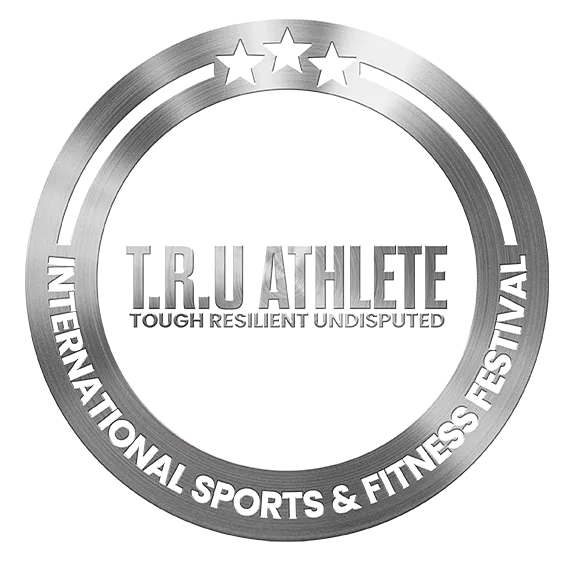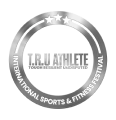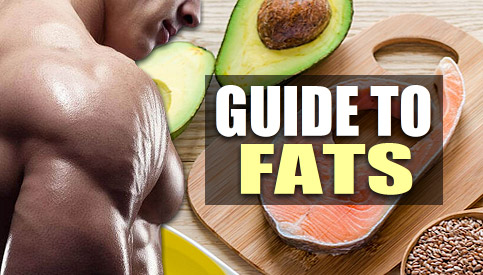The bodybuilding diet is a set of eating habits designed to maximize muscle growth and minimize fat gain. Bodybuilders usually follow the macronutrient intake that allows them to intake a high amount of protein, calories, and fat. It’s key for bodybuilders to intake macronutrients in the right quantities because it affects muscle growth, recovery from workouts, and body composition.
Eating a healthy diet ensures weight control, recovery from workouts, and body composition. If you are new to bodybuilding or just looking for a meal plan, this guide will help you create an ideal meal plan for bodybuilding. Further down, we have created a meal plan of 7 days that will help you get started with your nutrition plan. Let’s get into it!
Tips to Follow When Creating Your Meal Plan
- Determine your daily caloric intake: The first step in creating a bodybuilding meal plan is to determine how many calories you need to consume each day. This number will depend on factors such as your age, gender, height, weight, and activity level. A nutritionist or dietitian can help you calculate your daily caloric intake.
- Eat a variety of nutrient-dense foods: To build muscle, you need to consume a variety of nutrient-dense foods such as lean proteins, complex carbohydrates, and healthy fats. Foods that are high in protein include chicken, turkey, fish, tofu, lentils, and beans. Complex carbohydrates include foods like sweet potatoes, brown rice, quinoa, and whole-grain bread. Healthy fats can be found in foods like nuts, seeds, avocado, and olive oil.
- Plan your meals in advance: Planning your meals in advance can help you stick to your bodybuilding meal plan. Take some time each week to plan out your meals and snacks for the upcoming days. This will help you stay on track and avoid making unhealthy food choices.
- Eat smaller, more frequent meals: To keep your energy levels up and your metabolism running smoothly, it’s best to eat smaller, more frequent meals throughout the day. Aim to eat five to six meals per day, spaced out every two to three hours.
- Incorporate supplements: Supplements can help support your bodybuilding goals, but they should not replace a healthy diet. Talk to your doctor or a qualified nutritionist about which supplements may be right for you.
- Stay hydrated: Drinking plenty of water is essential for good health and optimal performance. Aim to drink at least eight glasses of water per day, and more if you are exercising intensely.
Nutrition for Bodybuilders
As a bodybuilder, proper nutrition is essential to support muscle growth and recovery, increase strength, and improve overall athletic performance. Here are some important considerations when it comes to nutrition for bodybuilders:
Caloric intake: Bodybuilders require a significant amount of calories to support their high-intensity workouts and muscle growth. A general rule of thumb is to consume 16-18 calories per pound of body weight per day, with adjustments made based on individual needs and goals.
Macronutrient ratios: Bodybuilders typically consume higher amounts of protein to support muscle growth and repair. Aim for a minimum of 1 gram of protein per pound of body weight per day. Carbohydrates provide the energy needed for workouts and recovery, while fats are important for hormone production and overall health. A balanced ratio of all three macronutrients is key.
Timing of meals: Eating frequent, smaller meals throughout the day can help support muscle growth and recovery. Aim to eat every 3-4 hours, with a focus on pre- and post-workout nutrition. Consuming protein and carbohydrates within 30 minutes after a workout can help promote muscle recovery and growth.

Food List for Bodybuilders
When it comes to building muscle and achieving optimal physical performance, the importance of nutrition cannot be overstated. Bodybuilders, in particular, require a diet that is high in protein, complex carbohydrates, and healthy fats to fuel their intense workouts and promote muscle growth and recovery. Here is a food list for bodybuilders to help them achieve their fitness goals:
Lean Protein Sources: Bodybuilders need plenty of protein to build and repair muscle tissue. Some excellent sources of lean protein include chicken breast, turkey breast, lean beef, fish, egg whites, and low-fat dairy products such as cottage cheese and Greek yogurt.
Complex Carbohydrates: Carbohydrates provide the energy necessary for intense workouts and help to replenish glycogen stores in the muscles after exercise. Bodybuilders should focus on complex carbohydrates such as brown rice, quinoa, sweet potatoes, oatmeal, whole-grain bread, and pasta.
Healthy Fats: Contrary to popular belief, fats are an essential part of a bodybuilder’s diet. Healthy fats such as those found in nuts, seeds, avocado, and olive oil can improve heart health, boost energy levels, and support muscle growth and recovery.
Vegetables: Vegetables are an important source of vitamins, minerals, and fiber, all of which are essential for overall health and well-being. Bodybuilders should aim to consume a variety of colorful vegetables such as broccoli, spinach, kale, peppers, and carrots.
Fruits: Fruits are also an excellent source of vitamins, minerals, and fiber, as well as antioxidants that can help to reduce inflammation and promote recovery. Some of the best fruits for bodybuilders include berries, bananas, oranges, and apples.
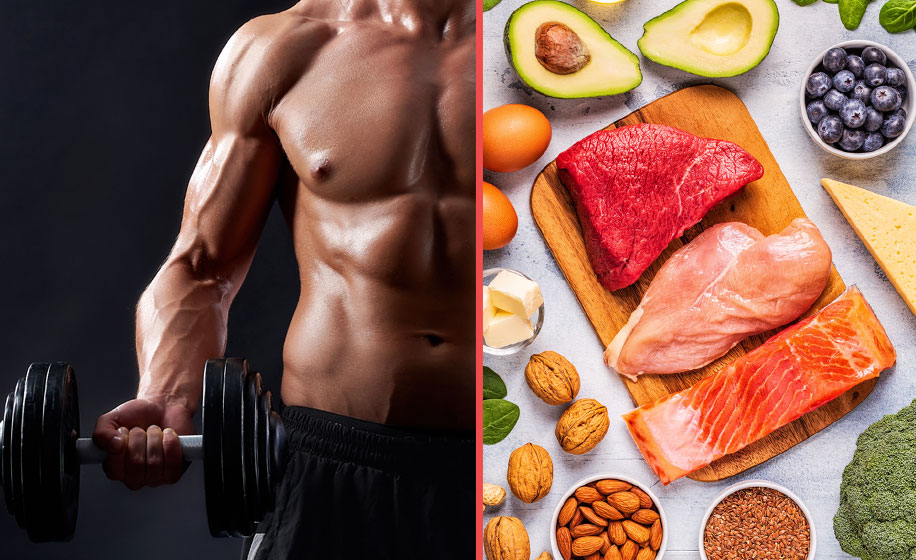
7-Day Meal Plan for Bodybuilders
If you are a bodybuilder, you need to make sure you are eating enough calories and getting enough nutrients to fuel your workouts and help you build muscle. Here is a 7-day meal plan that can help you meet your nutritional needs.
Day 1:
Breakfast: Omelet made with 4 egg whites, 1 whole egg, chopped veggies (spinach, onions, peppers), and a slice of whole-grain toast
Snack: 1 cup of mixed berries and 1/4 cup of almonds
Lunch: Grilled chicken breast with sweet potato and steamed broccoli
Snack: 1/2 cup of low-fat cottage cheese with sliced cucumber and cherry tomatoes
Dinner: Grilled salmon with brown rice and roasted asparagus
Day 2:
Breakfast: Greek yogurt with sliced banana, 1/4 cup of granola, and a drizzle of honey
Snack: 1 apple and 2 tablespoons of peanut butter
Lunch: Tuna salad with mixed greens, cherry tomatoes, and a whole-grain wrap
Snack: Protein shake made with whey protein powder, water or almond milk, and 1/2 banana
Dinner: Grilled chicken breast with quinoa and roasted Brussels sprouts
Day 3:
Breakfast: Protein pancakes made with 2 scoops of whey protein powder, 1/2 cup of oatmeal, 1/2 cup of unsweetened almond milk, and 1 whole egg
Snack: 1 orange and 1 hard-boiled egg
Lunch: Turkey burger with avocado and a side salad
Snack: Protein bar and 1 cup of sliced carrots
Dinner: Beef stir-fry with mixed veggies and brown rice
Day 4:
Breakfast: Protein smoothie made with whey protein powder, 1/2 banana, 1/2 cup of frozen berries, 1 tablespoon of almond butter, and unsweetened almond milk
Snack: 1 cup of edamame
Lunch: Grilled chicken breast with roasted sweet potato and green beans
Snack: 1/2 cup of low-fat Greek yogurt with sliced apple and cinnamon
Dinner: Baked tilapia with roasted butternut squash and a side salad
Day 5:
Breakfast: Veggie omelet made with 4 egg whites, 1 whole egg, chopped veggies (mushrooms, onions, peppers), and a slice of whole-grain toast
Snack: Protein bar and 1 cup of baby carrots
Lunch: Grilled chicken breast with brown rice and steamed asparagus
Snack: 1 banana and 2 tablespoons of almond butter
Dinner: Baked chicken thigh with roasted sweet potato and mixed veggies
Day 6:
Breakfast: Protein oatmeal made with 1/2 cup of oats, 1 scoop of whey protein powder, 1 tablespoon of chia seeds, and unsweetened almond milk
Snack: 1 cup of sliced cucumbers and hummus
Lunch: Shrimp stir-fry with mixed veggies and brown rice
Snack: 1/2 cup of low-fat cottage cheese with sliced peach and cinnamon
Dinner: Grilled steak with roasted Brussels sprouts and sweet potato
Day 7:
Breakfast: Protein smoothie made with whey protein powder, 1/2 banana, 1 cup of spinach, 1 tablespoon of peanut butter, and unsweetened almond milk
Snack: 1 apple and 2 tablespoons of almond butter
Lunch: Grilled chicken breast with quinoa and roasted butternut squash
Dinner: Baked chicken thigh with roasted sweet potato and mixed veggies
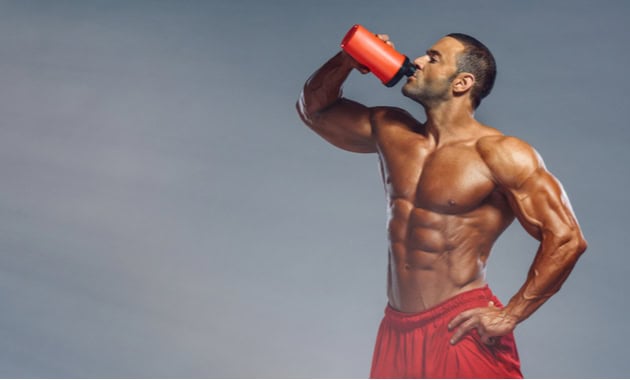
Supplements for Bodybuilders
If you’re a bodybuilder, then it’s likely you use dietary supplements to increase muscle mass and strength. Some of the most popular bodybuilding supplements include whey protein, creatine, and caffeine.
Whey Protein
Whey protein is an easy and convenient way to increase protein intake and can be found in dairy products like milk and yogurt. It’s a good choice for bodybuilders looking to gain muscle mass and strength quickly, as it has been shown to stimulate muscle growth.
Creatine
Creatine is another popular supplement used by bodybuilders. It’s a substance naturally found in the body and helps cells use energy more effectively. It can be taken in supplement form or through dieting, but should only be used under the supervision of a medical professional.
Caffeine
Caffeine also has many benefits for bodybuilders. It helps increase fat metabolism and calorie burning, leading to weight loss and muscle growth. Additionally, it can help bodybuilders push harder during their workouts by reducing fatigue and increasing blood flow to the muscles.
Establishing Your Calorie and Macronutrient Goals
When creating a bodybuilding meal plan, calories and macronutsrient goals are critical. Proteins, fats, and carbohydrates should make up the calories you eat to help your body build muscle mass. In general, protein makes up 10-15% of your calories, fat makes up 30-35% of your calories, and carbs make up the remaining 10-15%. This macronutrient breakdown aids in building muscle mass and helps you stay fueled during workouts.
To determine your macronutrient intake, it’s important to have a nutrition plan in place. This can be done through calculating caloric and macronutrient goals through a certified nutritionist or other advice. Meal plan examples that aid in determining caloric and macronutrient intake include Project Mass, LiveFit, and Shortcut to Shred.
